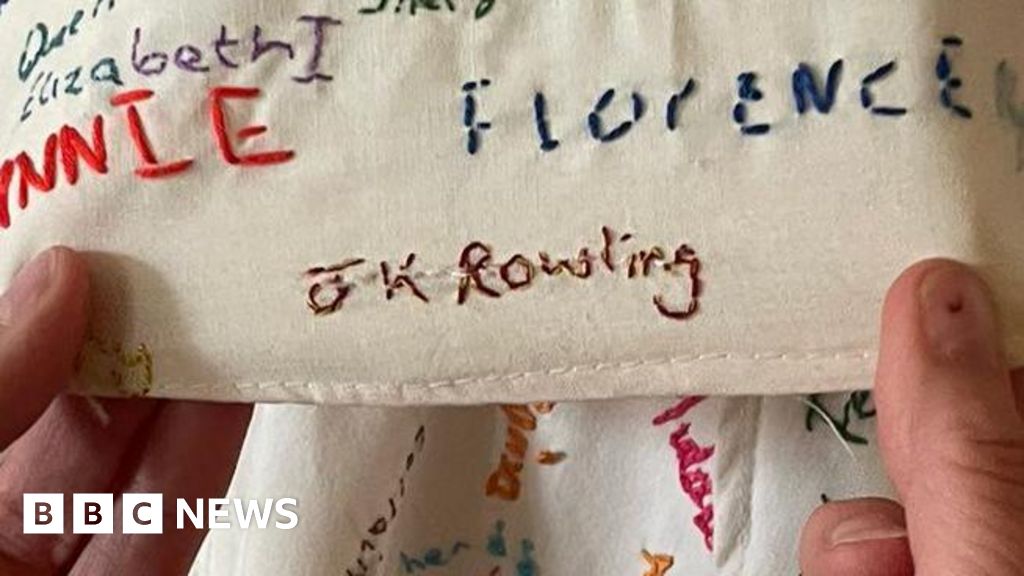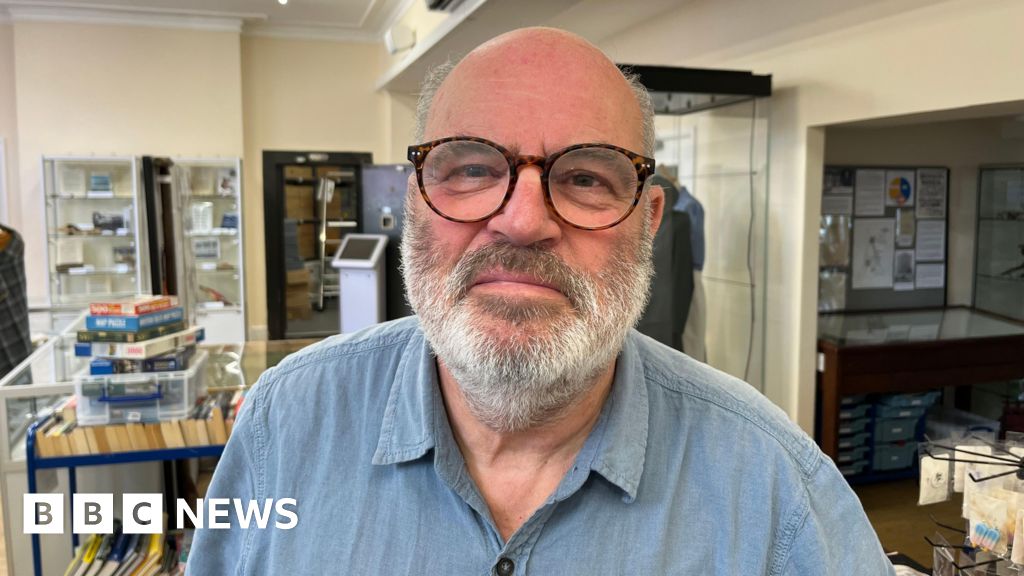- Careers
Trump administration pushback hits US gender diversity efforts
时间:2010-12-5 17:23:32 作者:China 来源:TV 查看: 评论:0内容摘要:helps to leaven the occasional overripe lyric, such as, “There is no future that can’t be designed/With imagination and a beautiful mind,” in the title track.helps to leaven the occasional overripe lyric, such as, “There is no future that can’t be designed/With imagination and a beautiful mind,” in the title track.
Jaiani had partially admitted guilt but rejected accusations of particular cruelty or that there were gender-based motives for his actions. He was not in the Tbilisi courtroom for the verdict, saying his psychological and emotional state prevented his being there, but added he regretted his actions.His lawyer, Giorgi Mdinaradze, denounced the verdict as “based solely on moral considerations rather than moral grounds,” and said he would appeal the conviction.

According to media reports, Jaiani and Abramidze were in a relationship for about two years and fought a lot before the killing in September 2024.A day after the killing, dozens of mourners brought flowers and candles to a makeshift memorial in central Tbilisi to Abramidze, whom members of the LGBTQ+ community praised as a symbol of strength and freedom. Although activists did not link the killing to the passage of the legislation, some feared the new laws could lead to an increase in hate crimes.Her death was a chilling reminder of the LGBTQ+ community’s vulnerability in Georgia, a country of 3.7 million people where the Orthodox Church wields significant influence, and demonstrations against gay rights are common.

Police block opponents of gay rights as they try to interfere a pride event in Tbilisi, Georgia, on July 8, 2023. (AP Photo/Zurab Tsertsvadze, File)Police block opponents of gay rights as they try to interfere a pride event in Tbilisi, Georgia, on July 8, 2023. (AP Photo/Zurab Tsertsvadze, File)

LGBTQ+ rights were severely curtailed by the laws that banned same-sex marriage, adoptions by same-sex couples and public endorsement and depictions of LGBTQ+ relationships and people in the media. The laws also banned gender-affirming care and changing gender designations in official documents.
The bill was introduced by Georgia Dream, the longtime ruling party, which opponents have accused of steering the country toward Russia’s orbit despite popular sentiment for closer ties with Europe.It is the brainchild of the Oxford Zimbabwe Arts Partnership, formed in response to the “Rhodes Must Fall” campaign during the
protests in the U.S.The group, consisting of Zimbabwean artists, an Oxford alumnus and a professor of African history, initially envisioned a larger project titled “Oxford and Rhodes: Past, Present, and Future.” It included enclosing Rhodes’ statue in glass, installing 100 life-size bronze statues of African liberation fighters and creating a collaborative sculpture using recycled materials to represent the future.
However, the project required an estimated 200,000 pounds, far beyond available resources. Eventually, Oriel College provided 10,000 pounds for a scaled-down exhibition.“It’s still my hope that one day it could happen, but for now we have just accepted something very small to make a start and to do something,” said Richard Pantlin, the Oxford alumnus and OZAP co-founder.
- 最近更新
- 2025-07-07 08:12:30guide The Medicare Annual Enrollment Period
- 2025-07-07 08:12:30Hamas-run court gives Gaza gang leader Abu Shabab 10 days to surrender
- 2025-07-07 08:12:30guide Medicare & Working Past Age 65
- 2025-07-07 08:12:30ABC NewsLawsuit accuses Trump admin of targeting minorities in Los Angeles immigration raids
- 2025-07-07 08:12:30Should you cosign a loan for your child or a loved one? A guide to risks and rewards
- 2025-07-07 08:12:30Fed cuts are coming: How a no-penalty CD can outshine your everyday savingsRead the full story
- 2025-07-07 08:12:30How all 50 states tax retirement income: A comprehensive list for 2025
- 2025-07-07 08:12:30Can you lose money in a high-yield savings account? Top 6 risks to watch out for
- 热门排行
- 2025-07-07 08:12:30Fluminense edge out Al Hilal 2-1 to reach Club World Cup semis – updates
- 2025-07-07 08:12:30How all 50 states tax retirement income: A comprehensive list for 2025
- 2025-07-07 08:12:30showed off the sparkling diamond ring
- 2025-07-07 08:12:30Should you ever use a 401(k) loan to pay off debt? Pros, cons and considerations
- 2025-07-07 08:12:30AOLThe 122 best 4th of July sales to shop right now at Walmart, Amazon, Target, and more
- 2025-07-07 08:12:30Home equity loan vs. home improvement loan: Which is best for financing your next update?
- 2025-07-07 08:12:30The 5-Minute Tomato Salad I Can't Stop Making
- 2025-07-07 08:12:30Best personal loans for 2025: 7 editor picks for consolidating debt, improving your home and more
- 友情链接
- Uganda targeting LGBTQ community with hatred and violence: HRW Trump visits the Middle East: All the countries visited by US presidents Could AI help elderly people and refugees reconstruct unrecorded pasts? Trump Media to raise $2.5bn to invest in Bitcoin Far-right figure Tommy Robinson released early from UK prison US, Europe lift ‘range restrictions’ on Ukraine missiles: Why it matters DR Congo strips ex-President Kabila of immunity Pakistan promotes army chief Asim Munir to field marshal: Why it matters Trump-Putin call: Could it lead to a Russia-Ukraine ceasefire? Messi, Inter Miami rally to draw against Philadelphia Union in MLS Aftermath of deadly US air strikes on Yemen A lens on poverty and the environment: Sebastiao Salgado is dead at age 81 Trump seeks to boost US nuclear power, roll back regulations Tigers, jaguars and elephants flee cartel violence in Mexico’s Sinaloa Afghans face deepening humanitarian crisis on return home ‘Need answers’: Will Sri Lanka’s Tamils find war closure under Dissanayake? Messi, Inter Miami rally to draw against Philadelphia Union in MLS Congolese refugees in Burundi face starvation and violence amid aid cuts Why are the US and EU struggling to reach a trade deal? The one thing Trump might be getting right Australia begins cleanup after floods kill 5, strand thousands Qalandars vs Gladiators: Lahore win PSL final by six wickets – updates A lens on poverty and the environment: Sebastiao Salgado is dead at age 81 Qalandars vs Gladiators: Lahore win PSL final by six wickets – updates Why did rumours of a coup sweep Ivory Coast this week? Democracy in East Africa is retreating. Here is how it can be saved Video: Malaysia calls for expanded Myanmar ceasefire at ASEAN Summit Foreign journalists must not abandon their Palestinian colleagues in Gaza US banana giant Chiquita fires thousands over Panama strike Kylian Mbappe wins European Golden Shoe award for first time
